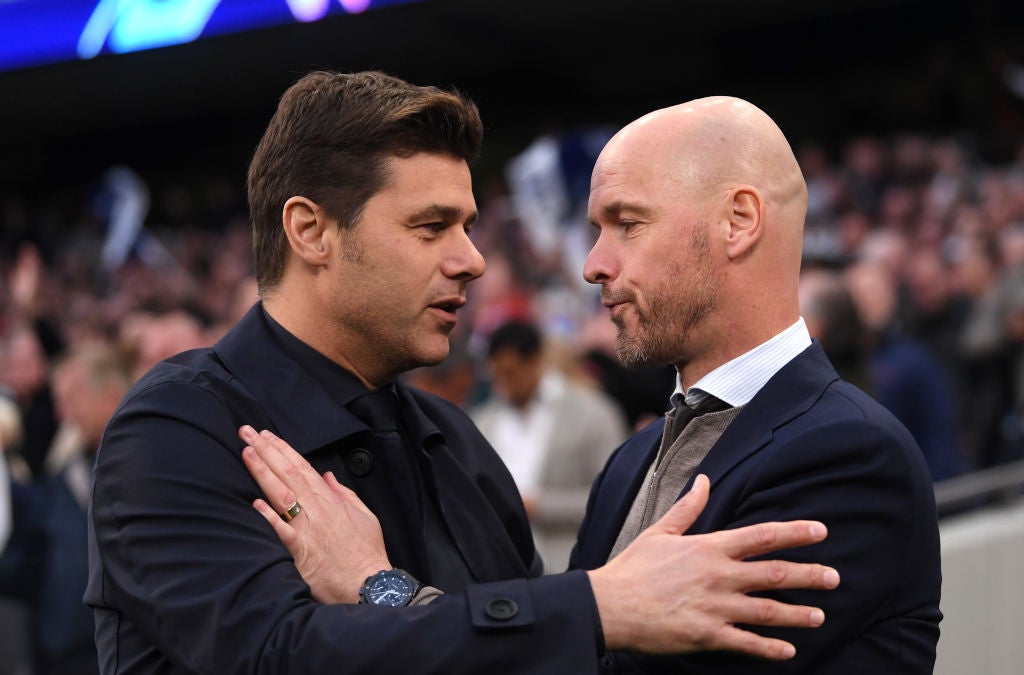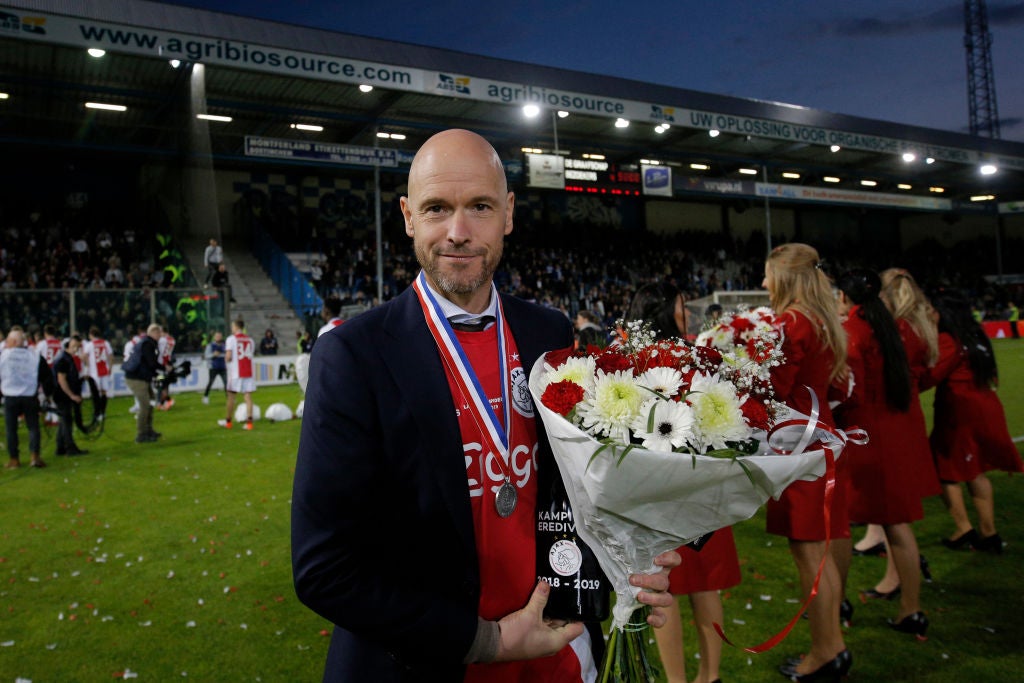
After a long, protracted but careful process spanning the best part of five months, Manchester United have their new permanent manager in place. Erik ten Hag will take the reins at Old Trafford having signed a contract potentially running until 2026. He is the successor to Ole Gunnar Solskjaer, the replacement for Ralf Rangnick and the fifth manager to follow Sir Alex Ferguson in the space of just nine years.
In Ten Hag, United believe that they have secured the services of a proven winner who fits the club’s core principles of an attractive, attacking style of play and a fierce commitment to developing youth. Senior Old Trafford figures have been impressed by his record of improving players as a coach on the training ground, as much as the results he has picked up on the way to winning two Eredivisie titles in his only two full seasons, with a third title still left to play for.
Ten Hag’s backroom staff is now beginning to take shape. The appointment of Mitchell van der Gaag, Ten Hag’s assistant at Ajax, is expected to follow. Negotiations with the 50-year-old are understood to be ongoing but at an advanced stage. Ten Hag is also keen to link up with Steve McClaren, having worked as his assistant at FC Twente, and wants the former assistant to Ferguson for his experience of the club’s inner-workings during its glory days.
Restoring said glory days has been the objective of each man appointed to the role since David Moyes, not to mention those behind the appointments themselves. Yet the identity of Old Trafford’s key decision-makers has changed since those days and so too has the process which led to Ten Hag’s appointment. There is no ‘chosen one’ – Moyes’s moniker – this time around. Or at least, if there is, he has been chosen by committee.
The search for Solskjaer’s successor was led by the figure at the forefront of United’s restructured football operations, the de facto director of football John Murtough. The newly-installed chief executive Richard Arnold is said to have only engaged during its final stages. But Ten Hag is described as the unanimous choice of Murtough, Arnold and technical director Darren Fletcher, his appointment a product of United’s restructured football department.
If that is the case, then with unanimity comes collective responsibility. This is the first big, era-defining call that United’s new-look internal structure has had to make, if we judge the decision to appoint an interim manager as part and parcel of the same process. Some argue that by hiring a temporary stop-gap in the shape of Rangnick, United jettisoned an entire season. But if doing so allowed time for a full, considered search to find the right manager, it could still prove to be the right choice.
Ten Hag became United's first choice, but was not the early favourite. Mauricio Pochettino was heavily fancied, as he has been since that infamous Mayfair lunch with Ferguson while still in charge of Tottenham Hotspur in 2016. The favour of the Scot still counts for something at United, such is his enduring influence, but extracting Pochettino from Paris Saint-Germain in the middle of the season was always going to be difficult and United were nevertheless committed to a thorough and detailed search.

It was around the middle of March – when the process was stepped up a notch – that whispers began to emerge about momentum building behind Ten Hag’s candidacy. Pochettino had just suffered a humiliating turnaround to exit the Champions League at the hands of Real Madrid while Ten Hag’s Ajax had also been surprisingly knocked out by Benfica. Those results were never likely to sway United’s decision but face-to-face interviews would.
Those in the room when Ten Hag sat down with United executives later that month are said to have been taken by the energy and enthusiasm that the 52-year-old showed for the challenge and the long-term vision that he clearly set out. United quickly came to believe that Ten Hag was the candidate most closely aligned with their identity, strategy and the existing club structure.
And though not a decisive factor, Ten Hag’s path to the manager’s office at Carrington was smoothed by healthy, pre-existing relationships between United, his employers and his representatives. Much has been made of United’s connection to Edwin van der Sar, their one-time goalkeeper and Ajax’s chief executive. That relationship remains strong despite the struggles of Donny van de Beek in Manchester.

Ten Hag’s representatives SEG International, meanwhile, have a working relationship with United dating back to the era of Ferguson and former chief executive David Gill, having worked on the negotiations to bring Robin van Persie to Old Trafford. SEG also acted in talks with Ed Woodward over Louis van Gaal’s appointment. “Now history repeats itself with Richard Arnold and Erik ten Hag,” the agency’s founder, Kees Vos, said upon confirmation of the appointment.
Concerns about Ten Hag’s lack of experience managing in any of Europe’s top leagues are valid but counterbalanced in the minds of United’s hierarchy by Ajax’s dominance of Dutch football under his tenure, the extraordinary run to the Champions League semi-finals in 2019 and his experience of operating at Bayern Munich, where he worked under Pep Guardiola for two years as the reserve team manager.
There are still loose ends to be tied up outside of the backroom staff. Ten Hag’s first day on the job is yet to be confirmed but is expected to fall earlier than 1 July. He has already had an input into plans and procedures ahead of next season but his focus will remain with Ajax until the Eredivisie campaign has reached its end and a third Eredivisie crown is secure. “I can assure our fans of my complete commitment and focus on bringing this season to a successful conclusion before I move,” he said.
And then, United hope the nine-year wait for a fitting Ferguson replacement will be over. If Ten Hag still finds that he is gainfully employed in the job once another nine years have passed, he will have more than repaid his new employers’ faith in his abilities. Given the chronic underachievement at Old Trafford since 2013, that is not a particularly high bar, but as each of Ten Hag’s predecessors would likely tell him, it is still a tremendously hard one to clear.







